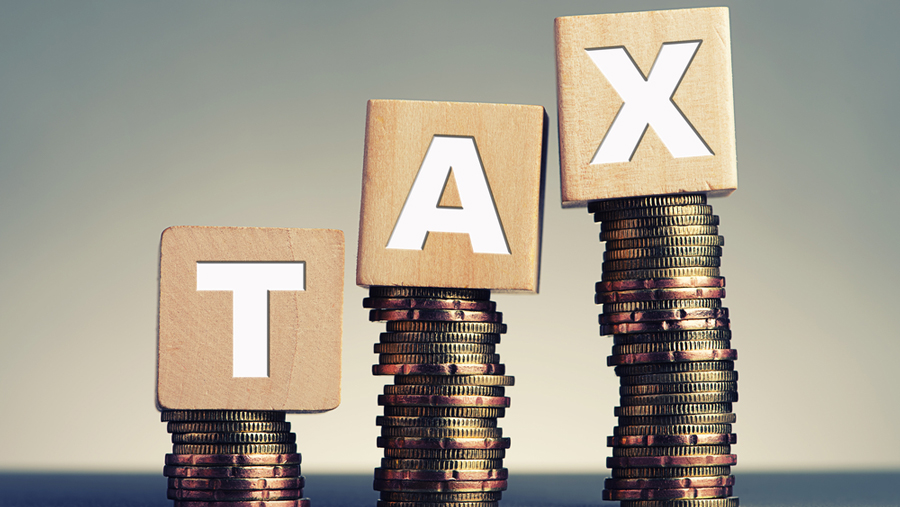Tax impact (Direct)
Proposal: Senior citizens who are of 75 years of age or above and having income from pension and interest are proposed to be exempted from filing of income tax return. Consequently, the paying bank/respective organisation would be required to deduct tax at source.
Impact: This will ease compliance burden on seniors.
Proposal: Tax incentives for affordable housing and affordable rental housing project. Eligibility period to claim additional deduction for interest of Rs 1.5 lakh against housing loan is extended to 31st March 2022 u/s 80EEA of the Act
Impact: This will incentivise the public to purchase an affordable house.
Proposal: Exemption for the value in lieu of any travel concession or assistance received by, or due to, an individual.
Impact: Due to outbreak of Covid-19 pandemic, consumption linked tax incentive has been allowed on expenditure in lieu of leave travel concession. This will increase cash inflow in the hands of the salaried employees.
Proposal: Withdrawal of exemption from interest income accrued from contribution to Recognised Provident Funds to the extent it relates to the amount or the aggregate of amounts of contribution made by the person exceeding Rs 2.50 lakh in a previous year in that fund on or after 01 April 2021.
Impact: This will impact the compensation structure of employees.
Proposal: Withdrawal exemption for Ulip policies issued post 01 February 2021, if the premium for such policies for any of the previous year exceeds Rs 2.5 lakh (except where received on death)
Impact: Ulips which are now exempt becomes capital asset and would be taxable as Capital Gains.
Corporate Tax
Proposal: Increase in threshold of total sales, turnover and gross receipt from Rs 5 crore to Rs 10 crore for tax-audits.
Impact: To promote digital economy and to further reduce compliance burden of small and medium sized enterprises. Tax audit would not be required if such enterprises are carrying on business having turnover of less than Rs 10 crore and the aggregate of cash receipts as well as cash payments during the year is less than 5%.
Proposal: Employee's contribution towards employee welfare funds to be allowed as deduction to the employer only if the same is deposited within the time-limit provided under relevant welfare labour laws (applicable from financial year 2019-20)
Impact: Employee’s contribution towards employee welfare funds is considered as an income of the employer. To ensure timely contribution as well as reduce unjust enrichment by the employer at the cost of employees, the government has clarified that employee's contribution to relevant fund would be considered as admissible deduction, if the same is deposited within the timeline provided under relevant labour laws.
Proposal: Rationalisation of advance tax provisions with respect to dividend income. Henceforth, interest for short-payment of advance tax would only be applicable on dividend income beginning from the period in which dividend is declared / paid. The amendment is applicable retrospectively from FY 2020-21 onwards
Impact: Due to the intrinsic nature of the dividend income, it is not possible to determine the advance tax liability on dividend income earned during the year.
Relaxation for interest for payment of advance tax instalment has been proposed on dividend income and advance tax considering dividend income shall now be payable beginning from the relevant period in which such dividend is declared / paid.
Tax impact (Indirect)
Customs duty
Proposal: Overhauling the customs duty structure and elimination of outdated exemptions. Revised customs duty structure to be put in place from October 1, 2021
Impact: In order to promote domestic manufacture, ensure ease of availability of raw materials and export of value-added products, comprehensive changes in customs duty structure, exemptions is proposed in consultation with industry. It's a welcome move and would help in streamlining the tax cost for industry and promote local manufacture and exports.
Proposal: Reduction in Basic Customs Duty (BCD) for inputs imported by domestic manufacturers in ferrous and non-ferrous metal sector
Impact: This will help to reduce the cost of manufacture and correct the inverted duty structure as BCD becomes a cost and set-off of same is not permissible against any output tax.
Proposal related to GST: : Increase in BCD for inputs used in electrical and electronic sector like hike in rate for compressor used in AC and refrigerating equipment, certain components of mobile phone
Impact: While it would help to promote domestic manufacture of such inputs, components, however, in short term, it may impact the price of final products until imports are substituted by domestic supplies.
Proposal: Levy of Agriculture Infrastructure and Development Cess (AIDC) on import of certain specified goods
Impact: This will create a separate fund for improvement of agriculture infrastructure and other development expenditure. However, to ensure that the levy of AIDC does not lead to additional burden on consumer, the corresponding BCD rates have been reduced for most of the items subject to AIDC.
Goods and Services Tax
Proposal: : Input Tax Credit eligibility is to be made conditional and would depend on the upload of details of invoice or debit note by suppliers
Impact: Above proposal will empower revenue authorities to disallow Input Tax Credit where it is found that supplier has not uploaded details of invoice or debit note in statement of outward supplies and communicated to recipient.
Proposal: Interest to apply on net cash liability and relevant GST provision has been proposed to be amended with retrospective effect from 1st July 2017
Impact: The above amendment would provide relief to assessee and will curtail unwarranted tax dispute.
- Analysis of key proposals by Dinesh Agarwal, tax partner, and Sidhartha Jain, tax partner, EY India.
- Views expressed are personal











